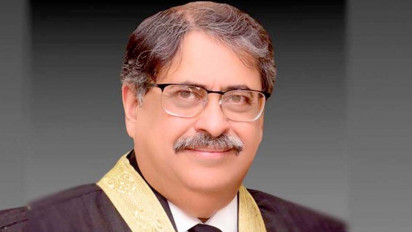Supreme Court’s Justice Athar Minallah has written a powerful letter to Chief Justice of Pakistan (CJP) Yahya Afridi regarding the 27th Constitutional Amendment, calling it a “moment of reckoning” for the judiciary and urging the Chief Justice to convene a judicial conference to address the growing concerns over institutional independence.
In the seven-page letter dated October 8, 2025, and circulated among all Supreme Court judges, Justice Minallah expressed alarm over what he described as the “continued capture” of the judiciary. He warned that the proposed 27th Constitutional Amendment poses a serious threat to judicial autonomy, noting that preparations are already underway to establish a new Constitutional Court within the Federal Shariat Court’s premises even before Parliament has debated or passed the amendment.
Justice Minallah stated that he felt compelled by his constitutional duty to record how “destiny is being shaped behind the marble walls of the last resort of justice.” He criticized the Supreme Court for aligning itself with “forces that had attacked the independence of a constitutional court trusted by the people,” revealing that minutes of two full court meetings had been kept hidden from public scrutiny for “obvious reasons.”
In a strongly worded warning, the judge wrote that institutions can collapse “in no time through fear, surrender, or submission to the powers.” He lamented that Pakistan’s jurisprudence has too often “bowed before might and power instead of standing on the side of the people,” recalling the “unconstitutional removal and judicial execution” of former Prime Minister Zulfikar Ali Bhutto as one of the gravest betrayals of judicial oath and public trust.
Justice Minallah also referred to the persecution of Benazir Bhutto, the disqualification and “humiliation” of Nawaz Sharif, and the “victimisation” of Imran Khan as part of a recurring pattern where the will of the people was suppressed to protect the interests of the unelected elite.
He further highlighted that “external interference is no longer an open secret” and that accountability has been used as a weapon “to tame and control judges who refuse to bend.” The letter praised six “courageous” judges of the Islamabad High Court who had previously written a letter exposing institutional pressures, calling it an opportunity for redemption from past wrongs.
Concluding his letter, Justice Minallah urged CJP Yahya Afridi to convene a judicial conference to foster open dialogue among Supreme Court and High Court judges on the threats undermining judicial independence and the judiciary’s constitutional responsibility to protect citizens’ fundamental rights.


